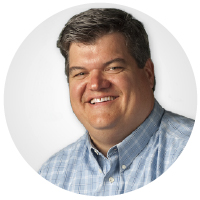| Mark Pietrucha, LSRPA President 2021 |
| Wednesday, April 07, 2021 09:14 AM |
 Mark Pietrucha’s Twitter profile describes him first as a “Contaminated Site Samurai,” even before being an occasional fisherman, terrible golfer and barbecue enthusiast. It’s a description he heard state Sen. Bob Smith, D-Middlesex, use for LSRPs and he liked it. Mark Pietrucha’s Twitter profile describes him first as a “Contaminated Site Samurai,” even before being an occasional fisherman, terrible golfer and barbecue enthusiast. It’s a description he heard state Sen. Bob Smith, D-Middlesex, use for LSRPs and he liked it.His interest in the environment as a career began as a child watching the Keep America Beautiful ad campaign showing a Native American finding litter and pollution, and shedding a single tear. The announcer at the end said, “People start pollution. People can stop it.” “Talk about a marketing campaign,” Mark said. “At least it worked for me.” After undergraduate work at Villanova University and graduate work at New Jersey Institute of Technology, Mark became a professional engineer specializing in environmental remediation. He became an LSRP with the first class in 2009. Residing in Haddon Township with his wife, Kelly, and sons Jude and Max, Mark likes to saltwater fish for “door-mat” flounder and occasionally golf terribly. “I guess it’s a choice. Do I spend more time fishing or do I spend more time putting a two-inch diameter ball into a four-inch diameter hole?” He knows why, for him, golf is a social event. At six-foot, eight inches, he said, “I’m just too tall for the game.” As an environmental consultant, Mark talks about understanding the regulator’s point of view and making adjustments based on the circumstances. His focus as President of LSRPA will be to stay on top of the regulatory changes at the NJDEP and licensing board, as well as guidance document changes that will influence the profession. “We’ve got revised remediation standards coming this spring,” Mark said. “We’ve got changes coming later this year to NJDEP and licensing board regulations based on amendments to the Site Remediation Reform Act. We as an association need to stay on top of those changes.” He also plans to continue the LSRPA’s focus on diversity, equality and inclusion both for the association and the environmental consulting profession. Here are his answers to key questions. What are your key practice areas? “Remediation. I think the way I’ve answered this before is I don’t consider myself a specialist - maybe more of a good project manager. I’m certainly not the technical go-to that my colleagues reach out to if they need a specialist. I’m usually the one who is asking the question. I specialize in good project management and a good understanding of the remediation regulatory framework in New Jersey.” What are your personal areas of expertise? “People skills, maybe. It’s hard to say. I’m not the remediation designer. I’m not the risk assessor. I guess if I had to say I was an expert in certain areas it would be site assessment and characterization. And then probably overall project management.” When someone asks you what you do for a living, what do you say? “I’m a remediation consultant. I usually follow that by saying remediation consultants assess, characterize and clean up contaminated sites.” How would you finish this sentence, “After I get done cleaning up sites in New Jersey, I would like to…”? “Do more fishing. I would like to go fishing more and probably travel. I guess that will come after I finish cleaning up sites in New Jersey and there is herd immunity from COVID-19.” Do you have any words of wisdom for someone interested in becoming more engaged in the LSRPA? “I’ve been on the board since 2015. I’ve been involved as a committee chair. I’d say don’t be afraid to speak up. Don’t be afraid to share your thoughts and opinions. Don’t be afraid to go to steering committee meetings and licensing board meetings. Look for opportunities to hear more about what is going on and participate in Association meetings, training, volunteering. Just get to know other people in our industry.” |